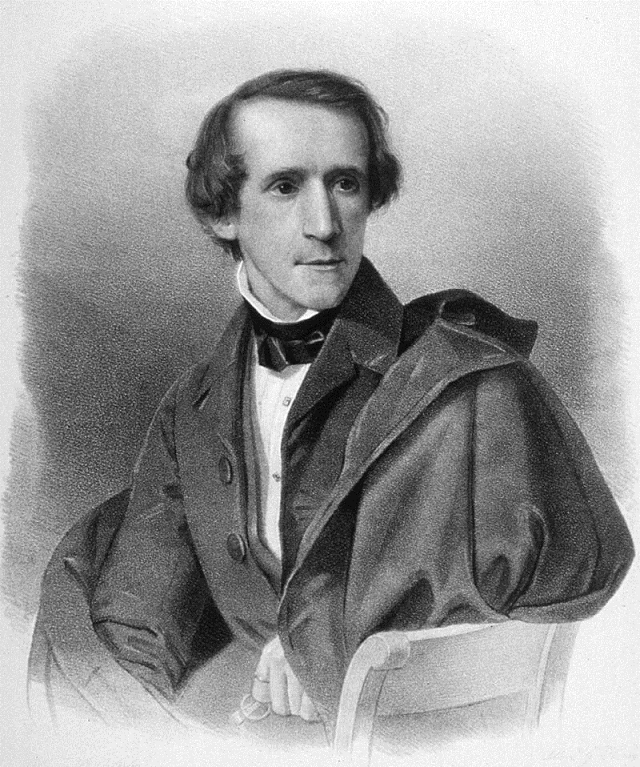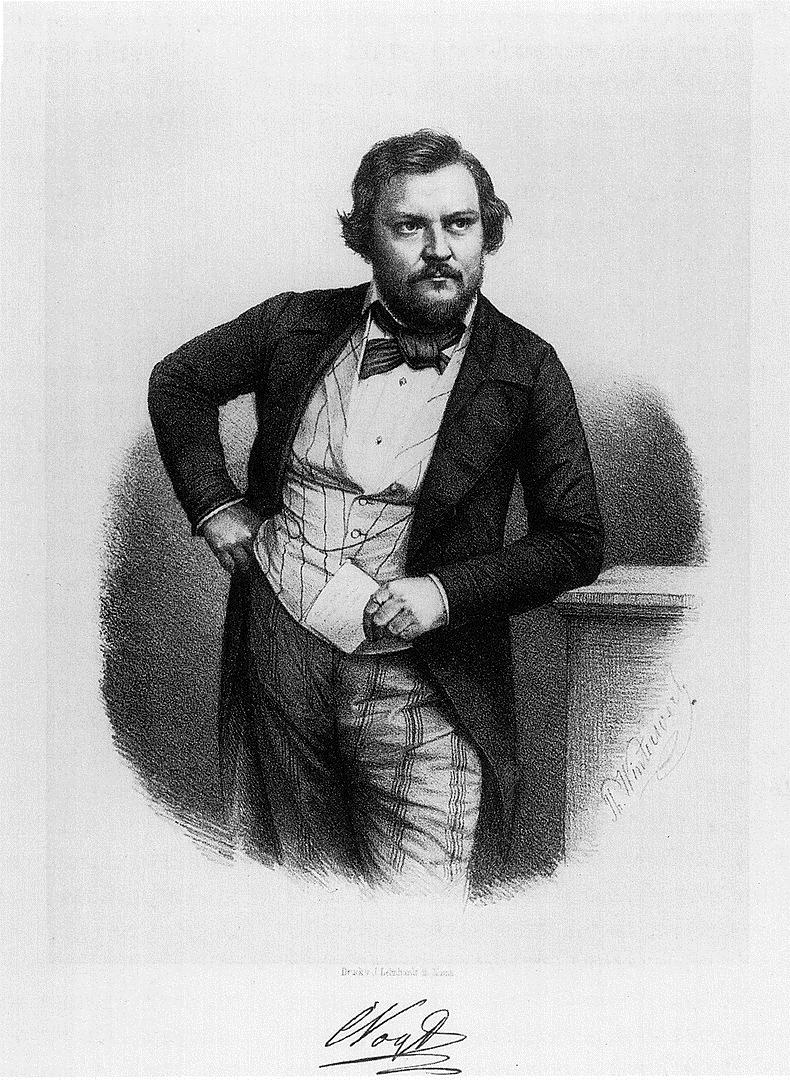The Materialism Controversy
by Andy Boyd
Today, a never-ending feud. The University of Houston presents this program about the machines that make our civilization run, and the people whose ingenuity created them.
Science and religion. Their relationship has scarcely been harmonious. Take Galileo's imprisonment for believing the earth revolved around the sun. Or the Scopes Monkey Trial which put the teaching of evolution on the stand. The reality is that inflammation at the boundary between science and religion is chronic, and contentious outbreaks are inevitable.
One such outbreak occurred in Germany in the mid-nineteenth century in what came to be known as the materialism controversy. The controversy is considered by some to be "one of the most important intellectual disputes of the second half of the nineteenth century. [A dispute that] began in the 1850s, and [whose] shock waves reverberated until the end of the century."
The dispute stemmed from physiologists' growing understanding of the workings of the human body. With this new understanding came a rising sense that the human body was a machine. Paul Broca, for example, discovered that speech was controlled by a specific part of the brain. Cell theory, the idea that plants and animals were made of self-replicating cells, was gaining acceptance.

Broca Area of the Brain
Photo Credit:Wikimedia.
In 1854, during his opening presentation at the 31st Meeting of German Naturalists and Physicians, Rudolph Wagner was moved to ask whether scientists were taking this human-as-machine analogy too far. Some in the ranks of the physiologists were calling into question free will, the existence of the soul, and humankind's descendancy from a single man and woman. For the Christian Wagner this was unacceptable, and in his presentation he called to task one especially vehement protagonist, Karl Vogt. Vogt, who wasn't at the meeting to respond, wrote a blistering response to Wagner's attack entitled Blind Faith and Science. In it, he likened the relationship between the brain and thoughts to the relationship between the kidneys and urine. The battle lines were drawn as people weighed in with their thoughts and accusations, which were not always scientific on either side. Writing many decades later in 1979 about the materialism controversy, noted theologian Hans Küng said of it, "A confrontation of this kind - with obscurities, exaggerations, downright errors, and even coarse language on both sides - would scarcely be possible in a debate these days."

Rudolf Wagner
Photo Credit:Wikimedia.

Carl Vogt
Photo Credit:Wikimedia.
The materialism controversy is one in a long line of disputes between science and religion. But if we look a bit more closely we can see something more. Vogt and the phalanx of scientists in his camp were atheists, driven to this philosophical position by their understanding of humans as nothing more than biological machines (and, one would imagine, by the unscientific claims made by their religious counterparts). The human-as-machine is a recurring theme in the ever-evolving relationship between science and religion, and one I presume will never be brought to closure, though I'll leave you with a thought brought to my attention by a colleague. Unlike machines, how is it that humans are capable of pondering the human-as-machine question to begin with?
I'm Andy Boyd at the University of Houston, where we're interested in the way inventive minds work.
The colleague mentioned in the essay is Dr. Sarah Fishman of the history department at the university of Houston. She is also the essayist's wife.
The underlying controversy is referred to both as the "materialist" and "materialism" controversy.
Frederick Beiser. After Hegel: German Philosophy, 1840-1900. Princeton: Princeton University Press, 2014. See also: Click here. Accessed July 11, 2020.
Michael Forster and Kristin Giesdal, eds. The Oxford Handbook of German Philosophy. 288-290. Oxford: Oxford University Press, 2015.
"Intelligence and Contemporary Opinions: Biblical, Educational, Literary, and Miscellaneous." In The Journal of Sacred Literature and Biblical Record, volume XI ed. Henry Burgess, 233-252. London: John Crockford, 1860. See also: Click here. Accessed July 11, 2020.
Hans Küng. Freud and the Problem of God. New Haven and London: Yale University Press, 1979.
This episode was first aired on July 23, 2020